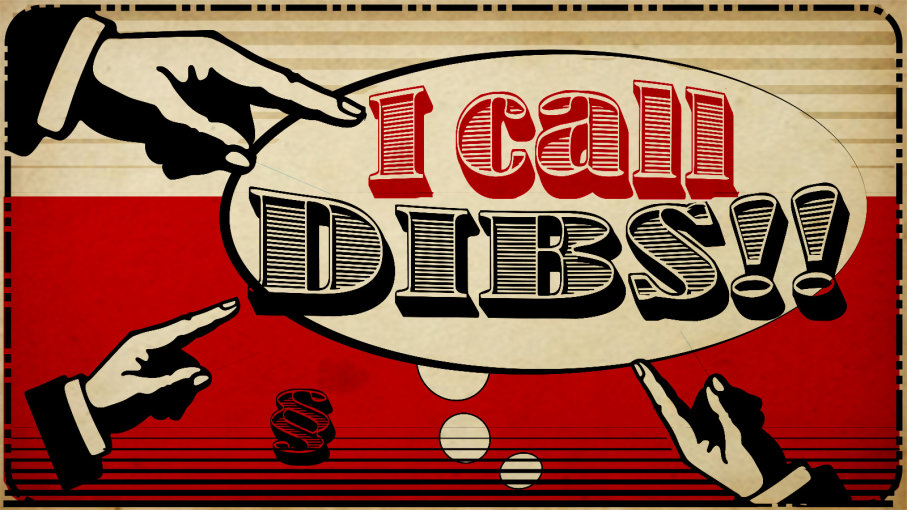What are dibs?
“Dibs what?” — you might ask yourselves. Well, then you might remember you’ve heard someone once say: “I’ve got dibs on that last piece of pizza!” and maybe you thought you hadn’t heard it right at that time. Nevertheless, “dibs” is a thing and it’s got its place in the Cambridge Dictionary. Let us cite that: << dibs on something = the right to have or get something from someone, or to use something>> . Now, you might know what this “dibs” means; it’s a phrase, yes, but where does it come from and what are the dibs actually? Let’s find out!

What are dibs?
The dibs are the knucklebones of a sheep. At least this is what you can find in the late 1800s England’s dictionaries. So, how did these dibs make it to our present times? Well, it seems that adolescent boys were playing a game called dibs. It was a kind of jacks and probably the knucklebones of a sheep came in handy as some part of this game, right? From the written recordings of those times, whenever there were no bones, kids would use pebbles. Swiftly, these pebbles also got their <dibstones> names. Now, because verbal language usually needs short forms, the dibstones became “dibs” and somehow this connection between that old adolescence game and the modern-day presentation of “dibs” happened. It’s not clear how the dibs got their place in the modern English dictionary though. One thing is good to know about the dibstones game: the pebbles or bones dubbed “dibs” accorded players some sort of advantage in the game. Probably, this is why it’s got its meaning nowadays.
How did the dibstones/knucklebones game work?
The old 17th-century game called dibs had children use sheeps’ bones or pebbles as pieces to claim. Whenever a player captured a stone, he would call out “dibs!” meaning it’s his now. Apparently, children loved this and started using this word outside the game as well. It’s quite satisfactory to steal the last piece of pizza and shut out “Dibs!” so everyone will look at you like at Darth Vader or something. Well, this is sort of what the dibs are nowadays. Of course, as with any controversial story, there is also another side of the legend.
A “dib” can also refer to a small sum of money
A “dib” is also a small sum of money or a “bit of something”. This meaning dates back to the 19th century and it was first coined in the UK. This might also be the origin of “the dibs” used as some sort of claim over something. Money can transform in a claim in the bigger picture of things, so maybe the dibs are money which gives you the right to claim something as your own.
The dibs is not such a big thing in the UK nowadays. It seems the phrase has fallen out of fashion, but it is still intensely used in the US, especially among children. Nevertheless, if you’re an adolescent living in the US and never heard this phrase, you shouldn’t worry too much. You’re OK.
